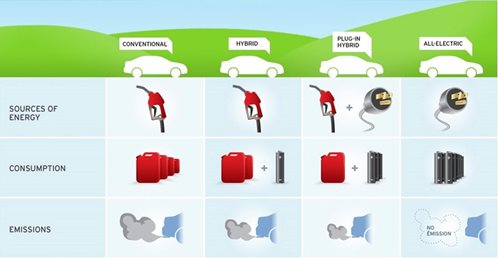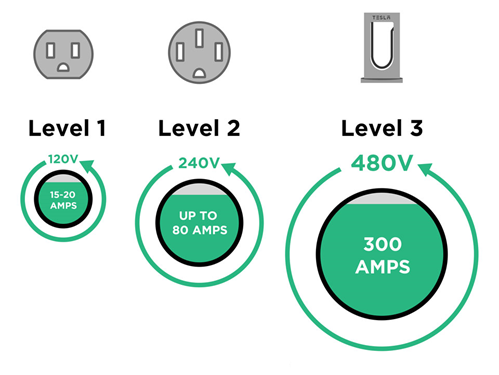Electric Vehicle (EV) Program - $250 Rebate Available
Did you know that by 2037 EV sales are expected to surpass those of internal combustion engines? While less than 1% of annual car sales are electric, as of December 2019 there were approximately 300 registered in Benton County. Benton PUD is charging forward with EV Connections, our Electric Vehicle Program, to help educate our customers who may be interested in purchasing an electric vehicle (EV). We know there are many things to consider when deciding if an EV is right for you. Our goal is to provide information so you are informed when deciding to move forward with an EV.
Benton PUD offers a rebate for customers buying or leasing a qualifying new EV. The EV must be all-electric with rechargeable batteries and no gasoline engine. Application must be submitted within 60 days of purchase. Vehicle must be registered at a Benton PUD service address.
Fill out the customer rebate application online or call us at (509) 582-1234 for a paper application.
More Info:
- Energy Efficiency & Renewable Resources & Incentives
- Please contact a tax advisor regarding other possible state or federal tax credits available

Owning an EV includes financial and environmental benefits. Since EVs don’t require gasoline, oil changes, or regular service on spark plugs and wires, the exhaust system, or brakes, owning an EV is expected to decrease your annual vehicle maintenance costs. Thanks to the abundant hydroelectric power in the Pacific Northwest and nuclear power from the Columbia Generating System, EVs are nearly 100% carbon-free, making them environmentally friendly.
Other benefits to purchasing an EV include:
- More efficient than a gasoline-powered internal combustion engine (ICE)
- Fewer moving parts and last longer than an ICE as battery technology improves
- Quiet ride with no engine noise
- Charge your EV at home
Leasing vs. Purchasing: Nearly 80% of EVs on the road today are leased (compared to 30% of all vehicles). When making the decision to take home the EV, you will need to decide whether to lease or purchase.
More Info:
Battery (or All) Electric Vehicles (BEVs or AEVs)
Battery or All Electric Vehicles have a battery and an electric motor instead of a gas tank and an internal combustion engine. They run entirely on electricity and do not produce any exhaust from the burning of fuel.
Plug-in Hybrid Electric Vehicles (PHEVs)
Plug-in Hybrid Electric Vehicles have an electric motor AND a gas-powered internal combustion engine. Some PHEVs operate exclusively--or almost exclusively - on electricity until the battery is nearly depleted, then the gasoline-powered engine turns on to provide power.
Hybrid Electric Vehicles (HEVs)
Hybrid Electric Vehicles have an electric motor AND a gas-powered internal combustion engine and don't plug-in for charging. HEV can have substantial range on a single tank of gas, but they still require trips to the gas station and scheduled engine maintenance.
More Info:
.jpg)
Types of Chargers

Level 1 Charger - 120V, 15-20 amps
Level 1 charging or "trickle charging" uses standard 120V electrical outlets. 120V circuits are also used by most home electronics.
Level 2 Charger - 240V, up to 80 amps
Level 2 chargers use 240V electrical circuits, similar to those used by electric dryers and stovetops.
Level 3 Charger - 480V, 300 amps
Level 3 direct current fast chargers use ultra high-power 480V circuits at public charging stations. Superchargers are Level 3 chargers.
Benton PUD is a member of the Electric Vehicle Infrastructure Transportation Alliance (EVITA). EVITA’s mission is to advocate for sustainable electric transportation infrastructure in Washington State and the Pacific Northwest. Benton PUD, as a member of EVITA, partnered with the City of Kennewick to install a charging station at the Southridge Sports and Event Complex.
.png?lang=en-US)
